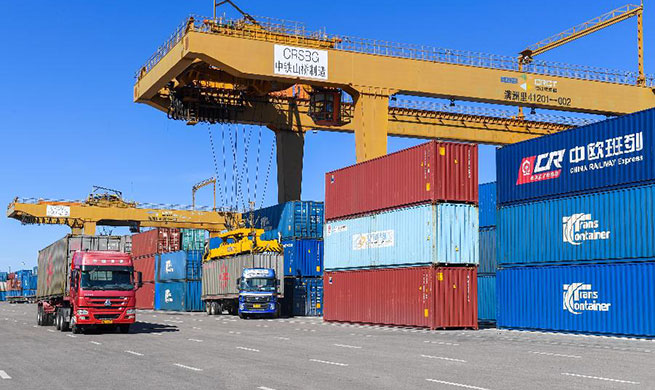WASHINGTON, June 4 (Xinhua) -- The World Bank on Tuesday lowered its global growth forecast for 2019 to 2.6 percent, while maintaining its growth projection for China at 6.2 percent, according to the newly released semi-annual Global Economic Prospects report.
"Heightened policy uncertainty, including a recent re-escalation of trade tensions between major economies, has been accompanied by a deceleration in global investment and a decline in confidence," the report said.
Global gross domestic product (GDP) growth in 2019 was downgraded to a "weaker-than-expected" 2.6 percent, 0.3 percentage point below previous estimate in January, the report said. Global growth is projected to inch up to 2.7 percent in 2020.
"The global economic outlook, in both the near- and long-term, is confronting substantial challenges," World Bank President David Malpass told reporters in a teleconference Tuesday morning, noting that downside risks to growth include rising trade barriers, a buildup of government debt, and deepening slowdowns in major economies.
Global trade growth in 2019, in particular, was revised down a full percentage point, to 2.6 percent, the weakest since the global financial crisis, the report said.
Ayhan Kose, director of the prospects group at the World Bank, said in the teleconference that the current 2.7 percent forecast for global growth in 2020 could be cut by a full percentage point to 1.7 percent if trade tensions continue to escalate.
Growth among emerging market and developing economies is projected to fall to a four-year low of 4 percent in 2019, as a number of economies are coping with the impact of financial stress and political uncertainty, it said. Growth is forecast to recover to 4.6 percent in 2020.
In the report, the World Bank maintained its growth projection for China this year at 6.2 percent, citing "a deceleration in global trade, stable commodity prices, supportive global financial conditions, and the ability of authorities to calibrate supportive monetary and fiscal policies to address external challenges and other headwinds."

















